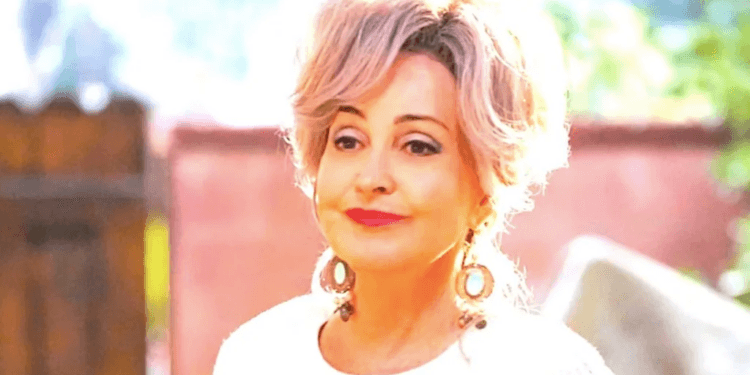Young Sheldon’s Georgie And Mandy Spinoff Needs Meemaw’s The Big Bang Theory Character Change

Although Young Sheldon’s spinoff Georgie & Mandy’s First Marriage needs to center its title characters and their relationship, the sitcom must also find time to explain Meemaw’s character change in The Big Bang Theory. By the time Young Sheldon’s finale aired, The Big Bang Theory’s spinoff had fixed a lot of plot holes left open by its predecessor. The antepenultimate episode of the series ended with the off-screen death of Sheldon’s father, George Sr., and the subsequent episodes focused on his legacy. Earlier outings from the final season explained away his infidelity and other inconsistencies between the two shows.
However, Young Sheldon’s spinoff Georgie & Mandy’s First Marriage has plenty of other plot holes to patch up. The sitcom pointedly ended with Georgie and Mandy happily married, even though viewers already know this doesn’t last. In The Big Bang Theory season 11, episode 23, “The Sibling Realignment,” an older Georgie mentioned his ex-wife in passing. This implies that Georgie and Mandy’s relationship is ultimately doomed to end in divorce or separation, as does the title of their spinoff. There are other plot holes Young Sheldon left unfixed which the show’s spinoff can now address in more detail.
Meemaw Was A Different Character In Young Sheldon and TBBT
The Big Bang Theory’s Meemaw Was More Sedate And Less Rebellious
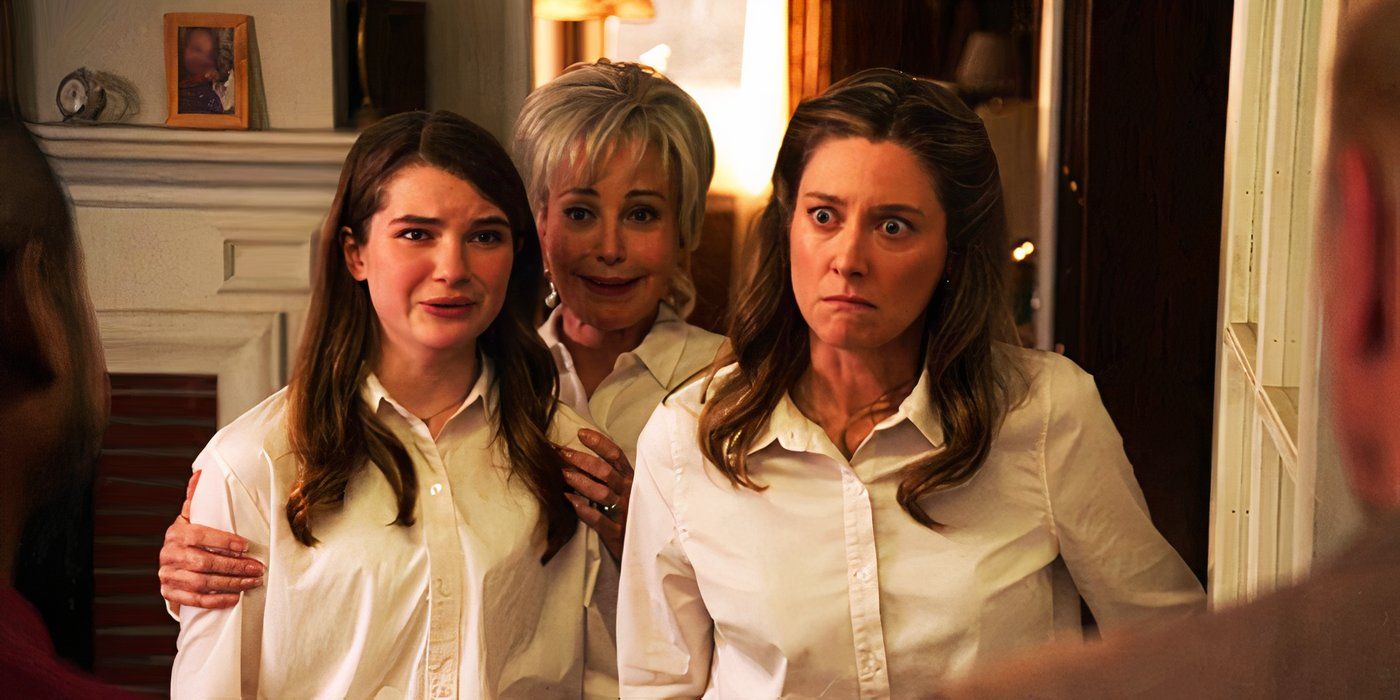
When June Squibb’s version of Meemaw first appeared in The Big Bang Theory season 9, episode 14, “The Meemaw Materialization,” she acted like a sterner, older version of Sheldon’s mother, Mary. Like Mary, Meemaw blithely made some hilariously inappropriate comments but was mostly self-serious in her demeanor. In contrast, Annie Potts’ version of Meemaw from Young Sheldon could not be less like the character’s earlier incarnation in The Big Bang Theory. Potts’ Meemaw was a comically rebellious, hard-drinking, fun-loving party animal who acted as a perfect inversion of her daughter. This ensured that the pair’s dynamic was always filled with tension.
As Mary scrambled to teach her children manners and decorum, Meemaw showed them how to fight, how to cheat, and all the other lessons their mother would rather have avoided. Meemaw’s character change between Young Sheldon and The Big Bang Theory was dramatic, as the sedate figure from the hit sitcom didn’t resemble Potts’ unapologetic rebel at all. Young Sheldon’s Meemaw even spent years running an illegal gambling room and employed Georgie to keep the place afloat. It is hard to imagine The Big Bang Theory’s Meemaw visiting such an establishment, let alone acting as its proud proprietor.
Young Sheldon Season 7 Set Up Meemaw’s Character Shift
Meemaw’s Brush With The Law Impacted Her Rebellious Behavior
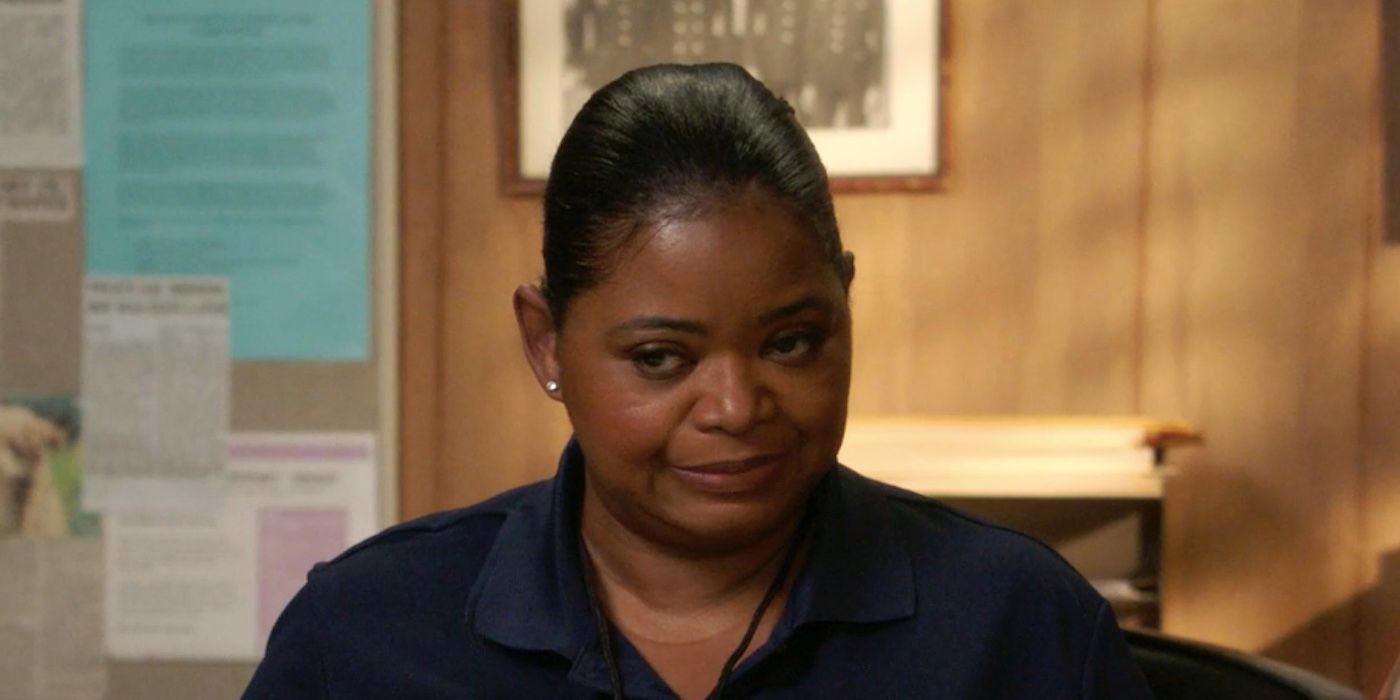
While Meemaw played only a minor role in The Big Bang Theory, her character was still firmly set up in her few appearances. Her personality explained where Mary got her stiff, uncompromising worldview from, and she shared her daughter’s fiercely protective attitude toward Sheldon. As Georgie & Mandy’s First Marriage riskily revivesThe Big Bang Theory’s multicam style, the spinoff also has a chance to bring back this persona. Young Sheldon‘s character didn’t align with The Big Bang Theory’s depiction of Meemaw, but Annie Potts is set to return in Georgie & Mandy’s First Marriage. The spinoff can portray her character change.
It makes sense for Meemaw to have become more subdued in the years between Young Sheldon and The Big Bang Theory, as her arrest for running the gambling room humbled her in season 7. After years of dramatically breaking up and making up repeatedly, Meemaw finally settled down with Dale and admitted that she loved him when she was under house arrest after the gambling room bust. This softer side of Meemaw seemed to indicate a move toward her personality from The Big Bang Theory, but the change in her demeanor was not as linear as viewers might have predicted.
Meemaw was assigned an intense, unsmiling probation office in the form of Octavia Spencer’s Rhonda.
In season 7, episode 10, “Community Service and the Key to a Happy Marriage,” Meemaw was assigned an intense, unsmiling probation office in the form of Octavia Spencer’s Rhonda. Rhonda immediately made it clear that she wouldn’t fall for Meemaw’s schemes and Meemaw was forced to put in some effort to complete her community service. While Young Sheldon’s Sheldon did help out thanks to his love of organization, Meemaw seemingly learned her lesson and was respectful of Rhonda’s approach in the episode’s ending. This seemed to signal her more mature persona’s emergence, but this was not to be.
Young Sheldon’s Ending Abandoned Meemaw’s TBBT Persona
Meemaw Reverted To Her Old Self In Young Sheldon’s Finale
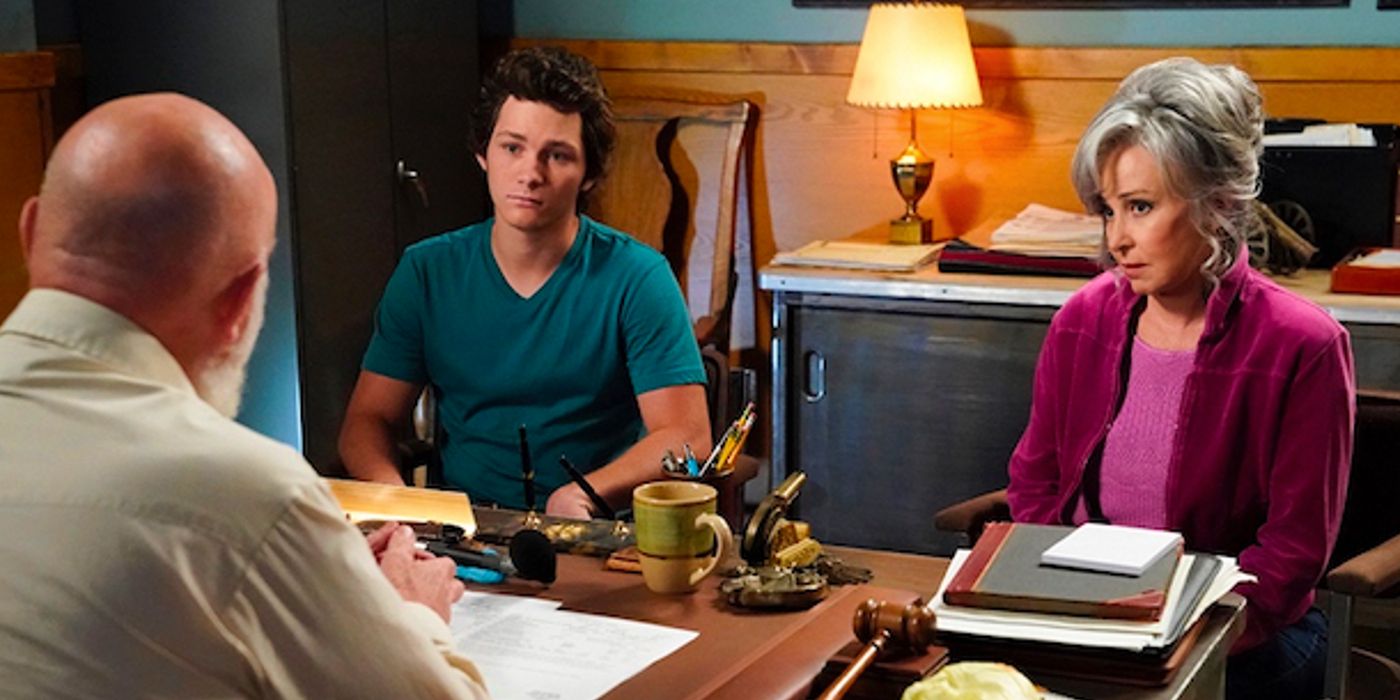
In the episodes that followed, Meemaw bounced between her old personality and a sadder, more tired version of her usual self. The lessons she learned from Rhonda about responsibility didn’t appear to last, as she was still bickering with Dale and insulting her son-in-law until shortly before he died. However, her typical joie de vivre also didn’t reemerge during this time. Young Sheldon season 7’s Meemaw was the worst version of the character, as she wasn’t spikily rebellious or hilariously stuffy like The Big Bang Theory’s older Meemaw. Instead, she simply seemed unhappy, something the finale doubled down on.
Meemaw drank a beer by George Sr.’s grave while failing to console her daughter.
In the final episodes of the spinoff, Young Sheldon reversed Meemaw’s character change by making her the same feckless character as before. In one of her last scenes in the show, Meemaw drank a beer by George Sr.’s grave while failing to console her daughter. Her flippant attitude in this scene and her disregard of Mary’s discomfort fit Young Sheldon’s Meemaw, but not The Big Bang Theory’s more demure version of the character. This was a strange and not entirely welcome surprise considering how much “Community Service and the Key to a Happy Marriage” established Meemaw’s character change.
She also tried to convince Sheldon and Missy to get baptized to help their mother grieve and, in the process, Young Sheldon’s Meemaw may have worsened Mary’s intense over-reliance on religion. Matters of faith often got between Sheldon and Mary throughout The Big Bang Theory, but Meemaw assured her grandchildren that their mother’s obsessive reliance on prayer would pass with time. This failure to think through the consequences of her actions fit Young Sheldon’s impulsive, rash Meemaw, but it didn’t feel suited to The Big Bang Theory‘s character. This reinforced the show’s move away from aligning the two characters.
Georgie & Mandy’s First Marriage Can Justify Meemaw’s TBBT Change
Georgie And Mandy’s Young Sheldon Spinoff Could Explain Meemaw’s Shift
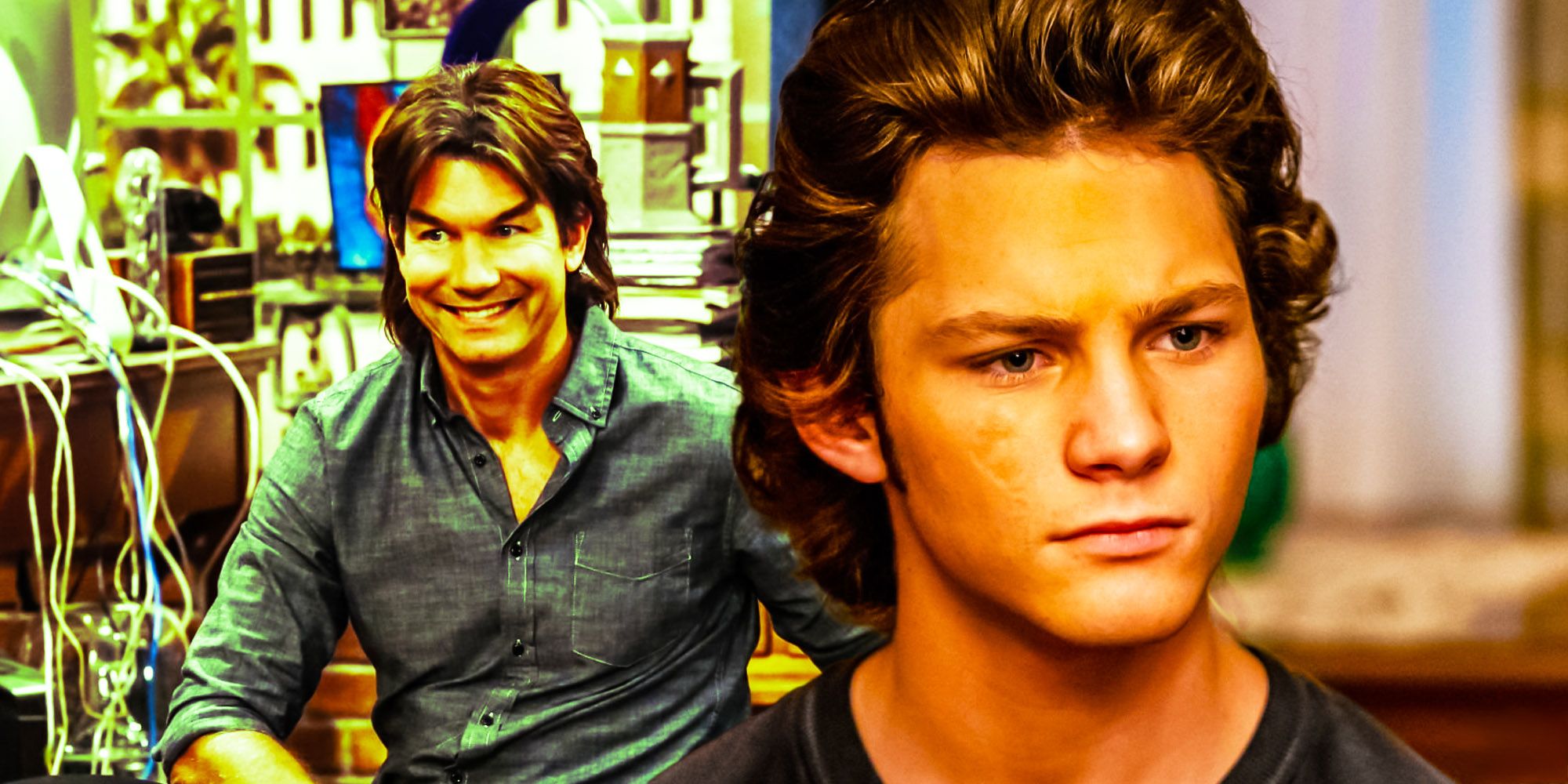
Fortunately, Georgie & Mandy’s First Marriage can now justify Meemaw’s character shift as the spinoff brings back Potts’ supporting character. There are a variety of reasons that Meemaw may become the more placid figure seen in the earlier sitcom and Georgie & Mandy’s First Marriage can explore all of these over time. Meemaw’s change might be caused by Missy’s teenage rebellion, which could cause Mary’s mother to reconsider the ways that her behavior influences her grandchildren. Alternatively, Meemaw might become less playful due to her closer relationship with the increasingly pious Mary. Her daughter relied on her heavily in Young Sheldon’s last episodes.
Georgie & Mandy’s First Marriage will premiere on CBS on October 17, 2024.
Since Meemaw’s prediction about Mary’s faith fading never came to pass, she may have needed to become more like her daughter to maintain a close friendship with her. Alternatively, Meemaw might become more polite as a way to ingratiate herself with the strait-laced McAllisters. Georgie and Mandy are living with Mandy’s parents when the series begins, so Meemaw will want to be on good terms with them. Whatever the specific reason, Georgie & Mandy’s First Marriage can make Young Sheldon.






















